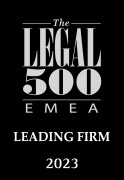WHAT RIGHTS FOR THE “REPORTED” IN SWITZERLAND?
GENERALLY
Communication of information in the context of the Common Reporting Standard (CRS) will take place between Swiss financial institutions and the Swiss Federal Tax Administration and not directly towards foreign authorities.
The agreement for Switzerland entered into force on January 1st 2017 and communication of information must take place at the latest on December 31st 2018. It will so in June 2018.
Consent on behalf of the holders (or the beneficiaries) of the assets held by an institution will not be required.
Rather, the exchange of information is “automatic”.
There may however be situations where a client may have to interfere and attempt to counter the exchange: this may be the case when the information to be exchanged is inaccurate or when the exchange may cause serious damage to the client.
Damage may however naturally not consist in the payment of taxes due in the country of residence.
RIGHT TO BE INFORMED
It is the Swiss Federal Act on Data Protection that provides for the right of the client to access information concerning himself held by the Financial institution or the Federal Tax Administration that will proceed to the international exchange per se.
All documents relevant to the exchange should be remitted to requesting party within 30 days.
In case of non-execution, the remittance of relevant documents may be requested judicially.
The successful exercise of the right to be informed and thus verify the information to be exchanged may give rise to the right to rectify false information or limit the extent of the information exchanged.
RIGHT TO RECTIFY FALSE INFORMATION
The right to rectify false information on the records of the bank may be of importance as it may determine not only the information exchanged on the amount of the assets of a client but also the direction of the exchange regarding for example information on his residence.
The Swiss Federal Act on Data Protection gives the right to request the rectification of erroneous data.
This rectification may also be requested judicially.
RIGHT TO LIMIT THE INFORMATION TO BE EXCHANGED
The information to be exchanged will often originate from a bank thus being covered by bank secrecy.
Banking secrecy is waived only for the information specifically allowed for by the Swiss Law on Automatic Exchange of Information.
Thus an overly “generous” exchange could fall under the criminal provisions related to the violation of bank secrecy.
PROCEDURAL CONSIDERATIONS
As the judicial implementation of all the above mentioned rights when exercised at the level of the financial intermediary (most importantly the right to rectify false information) is likely to be time consuming and extend beyond the deadlines set for the exchange, the need arises to ask the competent Judge for provisional measures that will block the exchange until a Judgement is rendered.
Provisional measures may be ordered only in the presence of a “non-easily reparable harm”. This condition, in the presence of an exchange of information between national authorities, may appear hard to fulfil.
The situation is not very different at the level of the Swiss Federal Tax Administration. According to article 19 paragraph 2 of the Swiss Law on Automatic Exchange of Information, the exchange may be blocked (and give rise to a rectification) only if it may cause “unreasonable prejudice” due to the lack of guarantees of the Rule of Law.
This condition also appears to be difficult to meet.
CONCLUSIONS
The “reported” client of a Swiss financial institution will almost always have the right to know the exact extent of information communicated.
On the basis of this information, he shall have the opportunity to request form the Institution that the information to be exchanged be rectified.
In most cases this will probably prove sufficient.
If judicial proceedings have to be initiated, practice will show what may in such a context be considered a “non-easily reparable harm”.
How easily reparable would for example be the fact to have information sent to tax authorities of an inexact residence, to have this information give rise to a procedure in said country and to be cleared of all reproach only after a number of years as may the case be in a number of participating jurisdictions?
Similarly, it would be hard to consider as “easily reparable” the prejudice resulting from administrative and lengthy criminal proceedings that may be initiated by a country of residence on the basis of false information received informing of the existence of substantially more assets than in reality.
The effectiveness of the rights of the reported will, interestingly, be shaped by practice.

